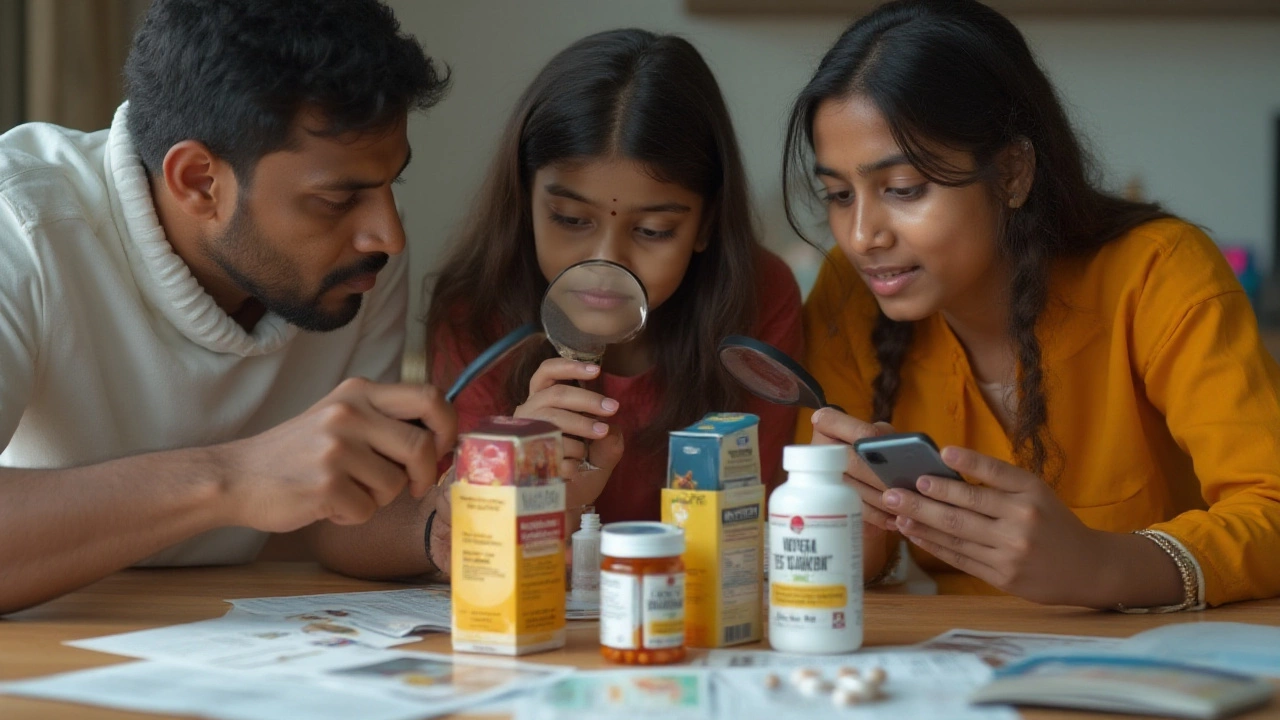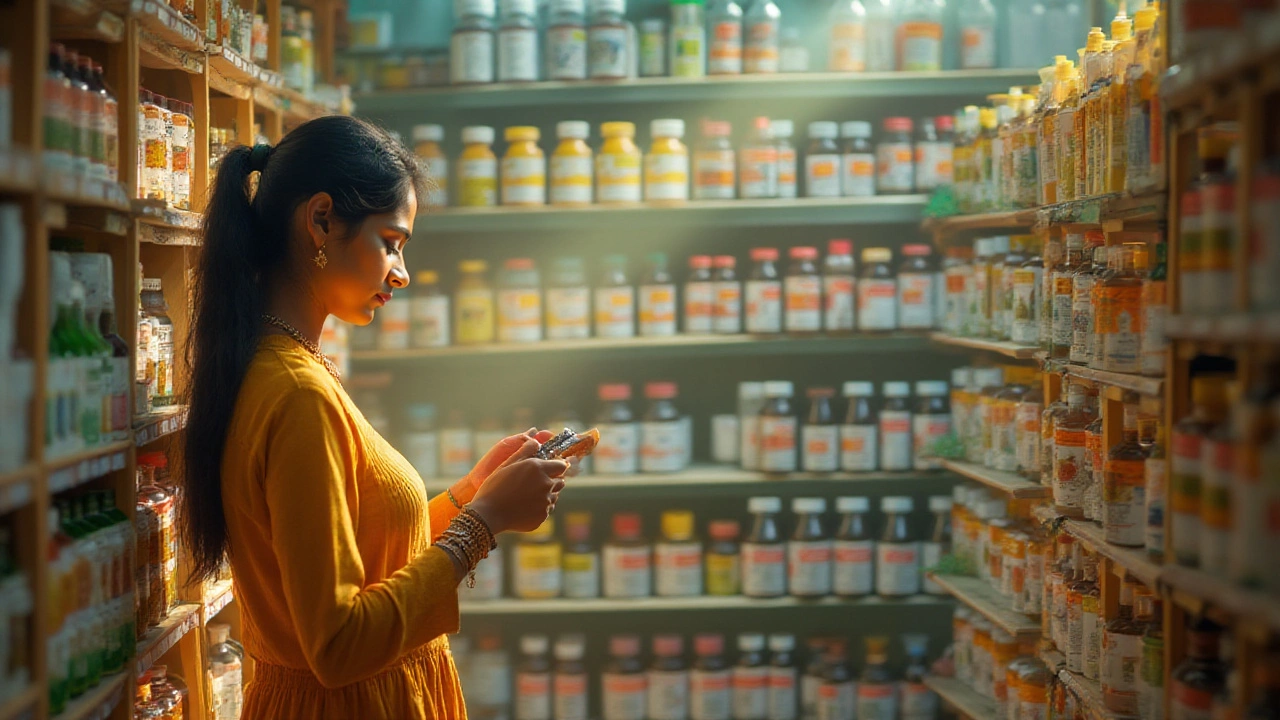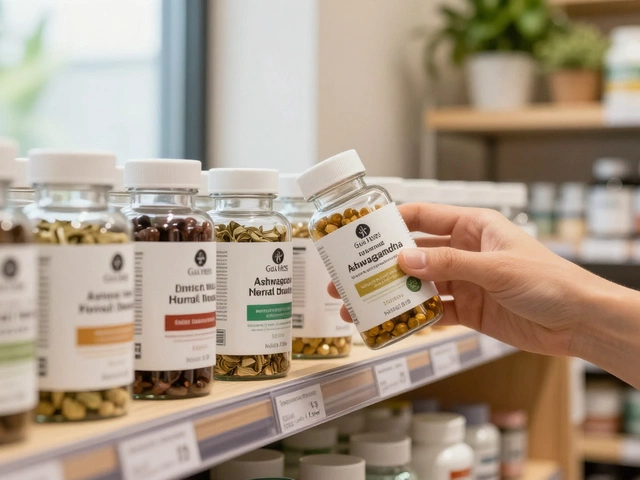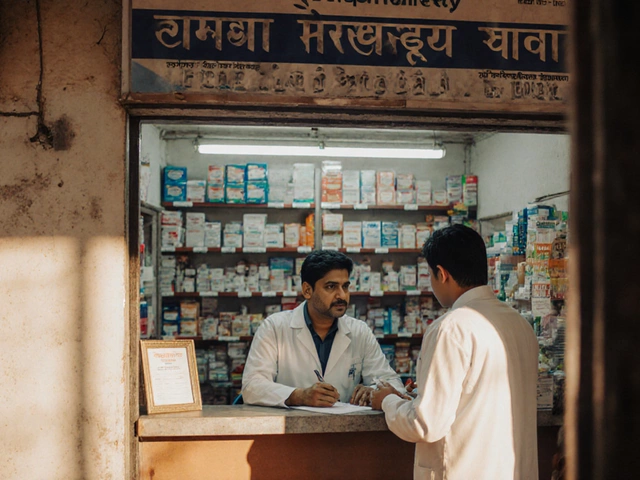That old saying, “natural is always better,” draws a lot of people toward herbal supplements. Whether it’s ashwagandha for stress, tulsi for colds, or turmeric for stubborn inflammation, the herbal aisle looks like a shortcut to good health. But here’s the kicker: not everything on those shelves is pure, safe, or even effective. A surprising number of herbal supplements in the Indian market contain more filler than actual herb, and a handful have been linked to harmful side effects, fake claims, and even illegal substances. If you don’t want to gamble with your health, you need to know what you’re looking for before you spend even a rupee.
Understanding Herbal Supplements: The Essentials
Let’s step back: what’s really inside those capsules and powders? Herbal supplements are usually made from roots, leaves, seeds, berries, or flowers—sometimes all mashed together. They promise to help with sleep, immunity, digestion, anxiety... the list never ends. But there’s no magic involved. The active components depend on the plant, how it was grown, harvested, processed, and even how it’s packaged. For instance, the active curcumin content in turmeric supplements can swing wildly between brands. In 2023, food safety tests in India found that nearly 28% of ayurvedic supplements didn’t contain the amount of active ingredient listed on their labels. That’s not just disappointing—it can be outright dangerous.
Here’s another catch. The Indian market is flooded with thousands of brands, from big pharma players to small startups to traditional family-run shops. Not all play by the same rulebook. Some use standardized extracts (with a guaranteed level of active substance), but others crush dried leaves and fill a capsule—no guarantee of consistency. Fancy packaging or celebrity endorsements can’t replace genuine quality control.
Let’s not forget about “herb-drug interactions” either. Certain herbs can clash with prescription meds. For example, St. John’s Wort is known to mess with antidepressants. Even harmless-sounding items like licorice root can raise blood pressure or interfere with heart medicines. That’s why health authorities keep warning people—herbal doesn’t automatically equal safe.
One thing buyers often overlook: shelf life and storage. Heat and humidity zap the punch out of plant extracts. In Bangalore or Mumbai, tablets left on a warm store shelf could lose much of their actual content by the time they reach your home. Always check manufacturer and expiry dates, and see if the supplement comes in light-blocking bottles or foil-sealed pouches. Some companies invest in this extra packaging for a reason.
Label reading is a skill, not just a habit. Reliable brands list the full botanical name (not just “Neem” but “Azadirachta indica”), part used (leaf, root), extraction ratio, and exact quantity. Any supplement saying only “proprietary blend” without stating how much of each ingredient it contains should make you pause. Transparency is king in the herbal world.
Check out this recent comparison:
| Herbal Product | Labeled Ingredient | Actual Content (% of label) | Authenticity Test |
|---|---|---|---|
| Brand A Turmeric | 95% Curcumin Extract | 49% | Failed |
| Brand B Ashwagandha | 10% Withanolides | 12% | Passed |
| Brand C Giloy | Whole Stem Powder | 15% | Failed |
This study, done by an independent lab in Hyderabad in late 2024, highlights a basic fact: differences in plant material and processing make a real-world difference in what you actually get. Results like these aren’t rare.

Quality Matters: Certifications, Testing, and Reputation
Foreign buyers often trust their countries’ certification agencies, but here in India, the rules are still evolving. Ayurveda, Siddha, and Unani drugs fall under the jurisdiction of the Ministry of AYUSH. While big players like Himalaya, Dabur, and Baidyanath maintain pretty good labs and quality checks, there’s little to stop smaller outfits from selling lookalike products with weak or contaminated ingredients.
Smart consumers look for extra indicators of product quality. Does the label display a GMP (Good Manufacturing Practice) seal? GMP-certified supplements follow set protocols for cleanliness, ingredient sourcing, and testing. If you see ISO, FSSAI, or USDA Organic certs alongside, that’s a sign the producer cares about maintaining standards.
While you’re at it, check if the company shares batch numbers and QR codes. Many trustworthy brands are already doing this. These codes can lead you to online batch test reports—which cover everything from pesticide residues to heavy metal analysis. Not impressed with numbers? Heavy metals like lead and arsenic occasionally pop up in untested herbal supplements. Cases reported by Indian food safety boards in 2023 and 2024 showed that nearly 11% of random supplement samples had heavy metal traces above recommended limits. It’s no joke: these substances build up in your body quietly but surely.
Contamination isn’t just chemical. Adulteration with cheaper or inert substances is common. For instance, saw palmetto supplements were found, more than once, to actually contain ground-up cabbage or soy fillers in place of expensive berry extract. The only way to be less vulnerable? Stick to brands that conduct 3rd party lab tests and actually share those results.
If it sounds too good to be true, there’s a reason. Phrases like “guaranteed cancer cure” or “lose 10 kg in a month” are red flags. Reputed brands never promise instant results. Look for honest marketing and detailed ingredient info, instead of vague health claims or celebrity testimonials.
And here’s a tip: check who stands behind the brand. Transparent companies are usually happy to share more info about their manufacturing sites, testing process, R&D teams, and even their list of suppliers. If a supplement floods your phone with WhatsApp or Facebook ads but provides no verifiable address or backstory, that’s your sign to look elsewhere.
Worried about price? Don’t fall for the idea that higher cost guarantees better quality. Sometimes, you’re just paying for marketing. Many trusted local brands keep costs low by selling directly online (think Kapiva, Organic India), but their documentation is rock solid. On the other hand, you’ll find expensive imports that don’t even show authenticity proof.
The short takeaway: every rupee you spend on herbal supplements should buy you transparency, not just a pretty label. If possible, talk to your doctor or a registered Ayurvedic practitioner before adding something new. Those folks aren’t just trained to spot fake claims—they also know what might interact with your current meds or conditions.

Smart Shopping: Finding Safe Herbal Supplements in India
Time to get practical. Browsing the herbal aisle or shopping on Amazon can be a bit of a minefield. How do you actually pick a winner?
Start simple. Only buy from licensed pharmacies, healthcare stores, or reputable ecommerce platforms—never from pushy door-to-door sellers, random online ads, or “secret” supply WhatsApp groups. In recent months, Indian health authorities busted several shops selling counterfeit ashwagandha and spiked weight loss supplements. Stick with the big names: companies like Himalaya, Baidyanath, Organic India, and Charak have reputations built on decades of customer safety records.
If you’re going online, read reviews—but not just the star ratings. Instead, dig into verified buyer feedback that includes info on packaging, delivery, actual benefits, and side effects. Look for trends: do multiple people mention stomach issues or no effect at all? Trust those patterns more than a single five-star glowing review that sounds like marketing copy.
Scan for real addresses, customer helpline numbers, or contact emails—these are signs of a legitimate business. Many serious supplement companies provide free consultations with doctors or nutritionists. If you see this, grab the offer and ask them about dosage, safety, and interactions.
Pay attention to returns and refund rules. If the company doesn’t offer any money-back guarantee or refuses to disclose ingredient sources, you have another reason to back away. Real sellers are proud of their products—they don’t hide when buyers have hard questions.
Watch out for packaging scams too. Check the hologram seals, batch numbers, and expiry dates. If anything looks tampered with, or if you get a bottle without a seal, contact the seller immediately, and don’t use the product.
As for dosing, more isn’t always better. Just because something is natural doesn’t mean you should double up. Follow label instructions and, if possible, get your dosage checked by a health professional. Remember: overdose or misuse of herbs like guggul or licorice can trigger liver problems, kidney issues, or blood pressure swings. The Indian National Institute of Ayurveda keeps reporting cases of hospital admissions due to such self-experimentation.
If you’re pregnant, breastfeeding, or managing chronic diseases, ask your doctor before you start any new *herbal supplements*. Herbal research is still young—many effects on fetus development or long-term immunology are unknown. Don’t risk it.
You want the newest tech? Several Indian startups are now using AI and DNA barcoding to verify the identity of herbal ingredients. Some companies add scannable QR codes linked to lab certificates and sourcing info. Don’t be shy about using these tools—demand to see evidence before you buy.
And finally, don’t mix multiple herbal products or combine them with prescription medicines unless guided by an expert. The world of plant medicine is powerful, but also easy to misuse if you get cocky.
If all this sounds complicated, that’s because it is. But your health deserves that extra ten minutes of research. Next time you shop for herbal supplements, bring your reading glasses and a sceptical eye—the peace of mind you get will be well worth the effort.








